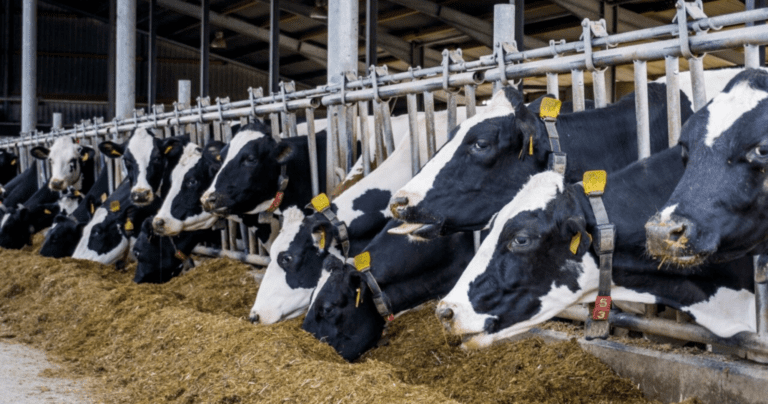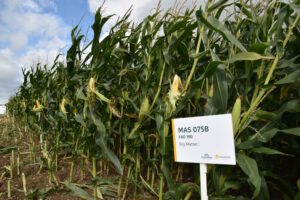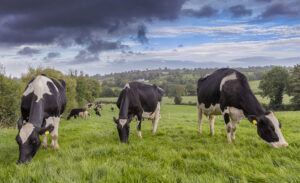As milk price looks favourable for the winter ahead; there is a large incentive to optimise milk production. Correct dry cow nutrition is the cornerstone to a successful transition into early lactation and to ensure peak milk yield targets are attained.
If fresh cows are not performing, take a step back and look at nutrition management practices in the close-up dry period as 80% of early lactation problems can be related back to the dry period.
Key points for dry cow nutrition:
Specific dry cow forage: Aim for grown out first or second cut which will have lower potassium (K) and Dietary Cation Anion Balance (DCAB) values, no slurry applied, sowed with only N fertiliser, wheat straw is preferable over barley straw in dry cow diets as the DCAB value is naturally lower and all dry cow forage should be tested for nutrient and mineral analysis.
Optimise dry matter intake: Higher dry matter intake (DMI) prior to calving will significantly increase DMI postpartum. Elevated DMI reduces the severity of negative energy balance in early lactation which has a positive effect on days to first service and conception rates. Maximising rumen volume in the dry period also reduces the risk of displaced abomasum post calving. Remember fat (BCS >3.25) and lame cows will have sub optimal intakes prior to calving. Over conditioned cows are more at risk of milk fever, fatty liver and ketosis as well as experiencing an exacerbated negative energy balance. Offer fresh, palatable feed daily with regular push ups and aim for a rumen fill score of 4 for dry cows.
Calcium Status: Calcium plays a vital role in muscle and immune function, therefore problems such as retained cleanings, displaced abomasum’s and mastitis in early lactation can often be linked back to sub optimal blood calcium levels at the point of calving. There are several nutritional strategies which can be implemented to prevent the prevalence of clinical and sub-clinical milk fever. The strategies include aim for forage DCAB value of <150 and potassium of <1.8%, inclusion of 2-3kg of chopped straw, ensure magnesium and vitamin D3 supplementation is adequate, supplement with magnesium chloride to achieve a ‘partial DCAB’ diet and do not feed milking cow ration or rock salt prior to calving.
Drummonds Dry Cow Primer nuts help overcome these issues and ensure a smooth transition to lactation. Included the Drummonds Dry Cow Primer nuts is 24% crude protein with high inclusion of soya providing elevated levels of bypass protein, magnesium chloride that helps to reduce incidence of clinical and sub-clinical milk fever, elite mineral spec that contains high levels of vitamin E and selenium to support immunity, Actisaf 3X that enables triple rate inclusion to maximise rumen function and fibre digestion and Safmannan that supports the cow’s immune system and increases immunoglobulin concentration in colostrum.
For further queries on how we can get your cows of to a better start, contact your local Drummonds representative or contact our dedicated feeds team on 046 902 1641.



